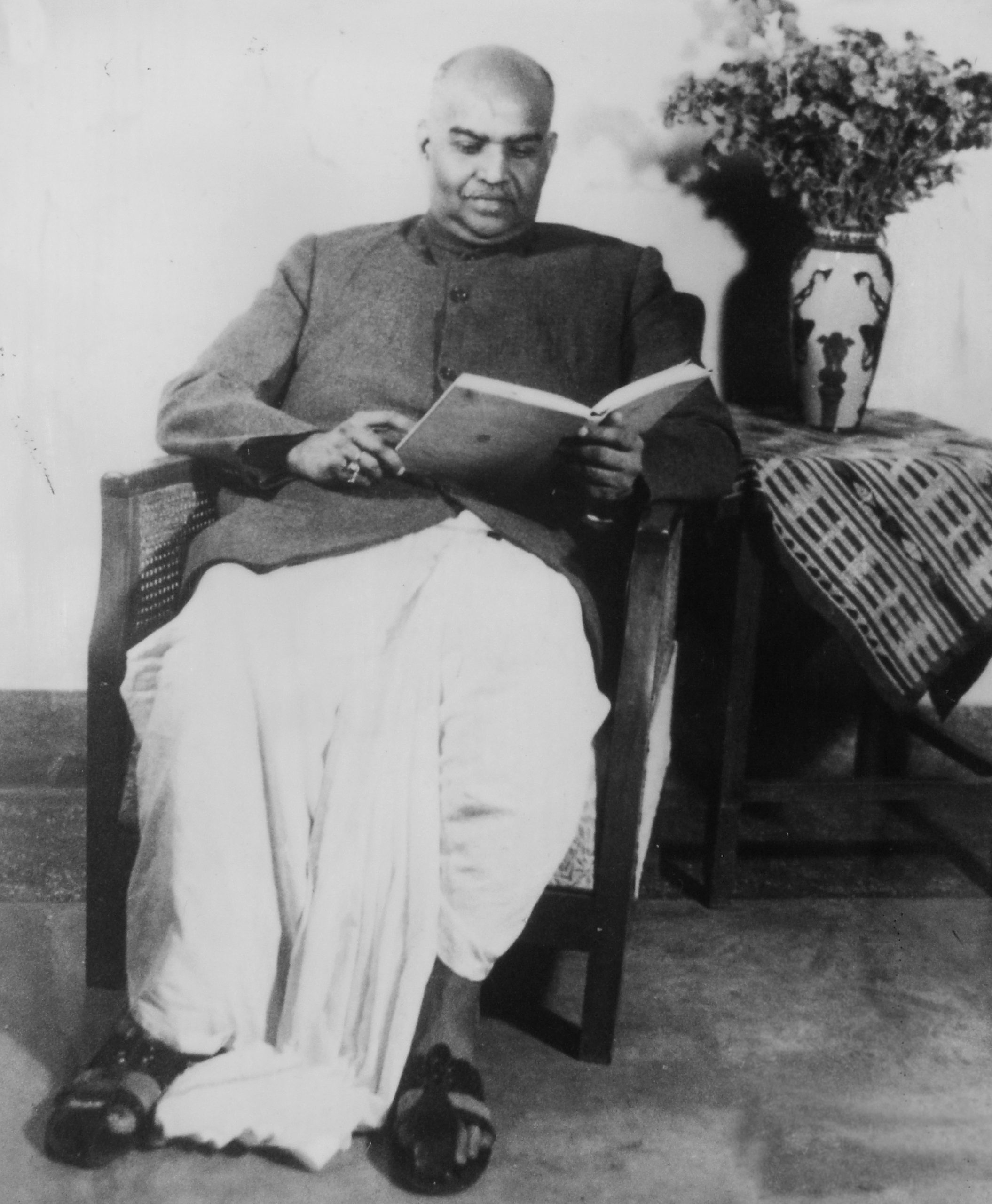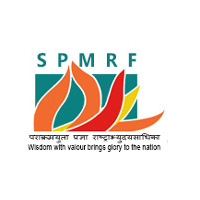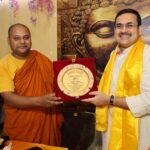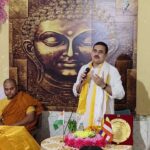For a United India
- By : Anirban Ganguly
- Category : Articles

It is deeply symbolic and profoundly significant that on 24th June, a day after Dr Syama Prasad Mookerjee’s 68th martyrdom day – Balidan Divas – Prime Minister Narendra Modi will confabulate with political parties from Jammu and Kashmir to chart out the future electoral map and trajectory for the region.
Prime Minister Modi’s vision of a new Jammu-Kashmir and Ladakh had been spelt out immediately after the defanging of Article 370. He had spoken of a new beginning for the region, a beginning which was inclusive and equitable for everyone. The last two years, has been a phase of multi-dimensional development for the region. Dr Mookerjee’s original demand for the removal of 370 was made with the sole aim of cementing India’s unity and integrity and of depriving no region or section from the benefits of the Constitution.
To anyone who has gone through Dr Mookerjee’s interventions in Parliament and his correspondences, this aspect becomes clear. It is only the Congress ‘family’ historians and Communist propagandists who have deftly blanketed that dimension of his demand. It was a demand made and debated within the ambit of Parliament, it was a demand that was articulated and argued for by Dr Mookerjee through a sustained and copious correspondence with two of the principle personalities whose decision mattered the most – Nehru and Sheikh Abdullah. When his persuasions failed, Dr Mookerjee resorted to a democratic non-violent movement within the democratic framework of the new Republic. In fact, it was Nehru who cracked down on the movement across the country and it was Sheikh Abdullah’s police who fired on the demonstrators, tortured and imprisoned them.
It has served and continues to serve a section of the commentariat to paint Dr Mookerjee’s demand as a narrow, politically expedient majoritarian demand. It is this same section which branded, as fascist, the Modi government’s historic step to disable Article 370. Discussing the situation in Jammu-Kashmir, in Parliament on 26th June, 1952, a year before his death in detention in Kashmir, Dr Mookerjee, for instance, argued that , ‘In a democratic federal state, the fundamental rights of the citizens of one constituent unit cannot vary vis-a-vis the citizens of another unit. Are not the people of Jammu and Kashmir entitled to the fundamental rights that we have given to the people of India minus Jammu and Kashmir? There is no scope for varied constitutional patterns, disparities as between one federating unit and another… All citizens of India…must enjoy the same fundamental rights and the same legal remedies to enforce them… But the fundamental question is that the fundamental rights of the citizen must apply to Jammu and Kashmir. There could be no compromise on that issue. The Supreme Court must function as the highest court or tribunal in the whole of India, Jammu and Kashmir including. The Auditor-General’s writ must function in the whole of India including Jammu and Kashmir. These are important issues, which should be conceded… Let us discuss the whole question.’ Dr Mookerjee also cautioned Nehru on the floor of the House, that he ‘must firmly assert that we do not want this ‘sovereign Kashmir’ idea. If you start doing it in Kashmir, others also will demand it.’
To Nehru’s fulmination and incoherent outbursts that the Jana Sangh, Dr Mookerjee and the demand for setting aside Article 370 was driven by a communal and sectarian motive, Dr Mookerjee’s rejoinder was unequivocal, ‘do not regard that, whenever an attack is made on certain matters of policy, some narrow, sectarian communal motive is prompting us. Rather it is the fear that history may repeat itself. It is the fear that what you are going to do may lead to the ‘Balkanisation’ of India, may lead to the strengthening of the hands of those who do not want to see a strong United India.’ The principle motive of Dr Mookerjee’s demand was to arrest, expose and dissolve those forces who did not want to see a newly freed India remain united and integrated. Decades after these words were spoken, when read in the backdrop of the present, they seem so clear and so amazingly prescient.
In February 1953, a few months before his sudden death in Srinagar, Dr Mookerjee making his interventions in Lok Sabha in the motion on the Address by the President. Candidly making a sort of a final appeal, he said, ‘The suggestion is: accept the Indian Constitution. This is a Constitution framed by a Constituent Assembly which was dominated by Shri Jawaharlal Nehru himself. This is a Constitution which is based on secular considerations. It is not a Constitution dictated by any communal motives. If it is good enough for four crores of Muslims in India why can it not be good for the people of Jammu and Kashmir?’
Can anyone who believes in the virtues of the Indian Constitution, in our democratic fabric and has a deep and abiding commitment to and faith in India’s unity and freedom join issues with this position? It is only the advocates of separatism, who ‘do not want to see a strong United India’, who have functioned within India as satellites of extraneous forces and ideologies who oppose it. These elements have, over decades, painted the demand for abrogating 370 as detrimental to Kashmiri interests, as communally motivated, a sectarian demand made with the motive of clamping on the rights of the people of the region and of foisting on them a majoritarian rule with the aim of exploiting and enslaving them.
This is the narrative that was and has been pushed across the world with the help of disintegrate-India cartels, both political and academic, which function in various institutions abroad or operate through various disguised forums in the name of human rights. These cartels are mainly supported by the Pakistani establishment and their benefactors in the West and it has been their principal objective, since the summer of 2014, to try and ensure that India remains stymied in adversities, delaying her emergence as a leading power. That hope was permanently damaged and destroyed when Article 370 was abrogated on 5th August 2019.
In his Independence Day address on 15th August 2020, from the ramparts of the Red Fort, with the entire country riveted on him, Prime Minister Modi had said that ‘The delimitation exercise is going on in Jammu-Kashmir under the leadership of a retired chief justice of the Supreme Court. We want early completion of the delimitation exercise so that there are early elections; there should be Jammu-Kashmir MLAs, its own cabinet, its Chief Minister so that it can march towards development with a new vigour. India is committed to it and is making all efforts in this regard.’ His intentions were clear then, the roadmap and its aims were also evident. Those who rejoice by saying that Modi has extended the invitation under pressure, ignore those public articulations of his.
With the electoral and political process Jammu-Kashmir will be on an unalterable trajectory towards complete integration. Its status will be like any other State of the Union, a state firmly within the ambit of the Constitution and a robust participant in the march for ‘New India.’ It is a fitting tribute to Dr Mookerjee’s vision and sacrifice.

















